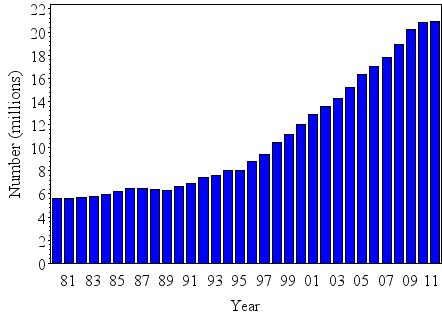A study conducted by scientists at the University of Rochester Medical Center shows that, during sleep, the brain flushes out cellular waste. Though the study was conducted on mouse brains, the lead researcher said that the plumbing system also exists in dogs and baboons, and it’s logical to think that the human brain also clears away toxic substances. This study may provide new clues to treat Alzheimer’s disease and other disorders, in which toxic substances build up.
When we sleep, our brains get rid of gunk that builds up while we’re awake. The finding may mean that for people with dementia and other mind disorders, “sleep would perhaps be even more important in slowing the progression of further damage,” Dr. Clete Kushida, medical director of the Stanford Sleep Medicine Center, said in an email. Kushida did not participate in the study, which appeared in the journal Science.
People who don’t get enough shut-eye have trouble learning and making decisions, and are slower to react. But despite decades of research, scientists can’t agree on the basic purpose of sleep. Reasons range from processing memory, saving energy to regulating the body.
The latest work, led by scientists at the University of Rochester Medical Center, adds fresh evidence to a long-standing view: When we close our eyes, our brains go on a cleaning spree. The team previously found a plumbing network in mouse brains that flushes out cellular waste. For the new study, the scientists injected the brains of mice with beta-amyloid, a substance that builds up in Alzheimer’s disease, and followed its movement. They determined that it was removed faster from the brains of sleeping mice than awake mice.
The team also noticed that brain cells tend to shrink during sleep, which widens the space between the cells. This allows waste to pass through that space more easily.Though the work involved mouse brains, lead researcher Dr. Maiken Nedergaard said this plumbing system also exists in dogs and baboons, and it’s logical to think that the human brain also clears away toxic substances. Nedergaard said the next step is to look for the process in human brains.
In an accompanying editorial, neuroscientist Suzana Herculano-Houzel of the Federal University of Rio de Janeiro said scientists have recently taken a heightened interest in the spaces between brain cells, where junk is flushed out.
It’s becoming clearer that “sleep is likely to be a brain state in which several important housekeeping functions take place,” she said in an email.
The study was funded by the National Institute of Neurological Disorders and Stroke. In a statement, program director Jim Koenig said the finding could lead to new approaches for treating a range of brain diseases.
Source: USA Today





